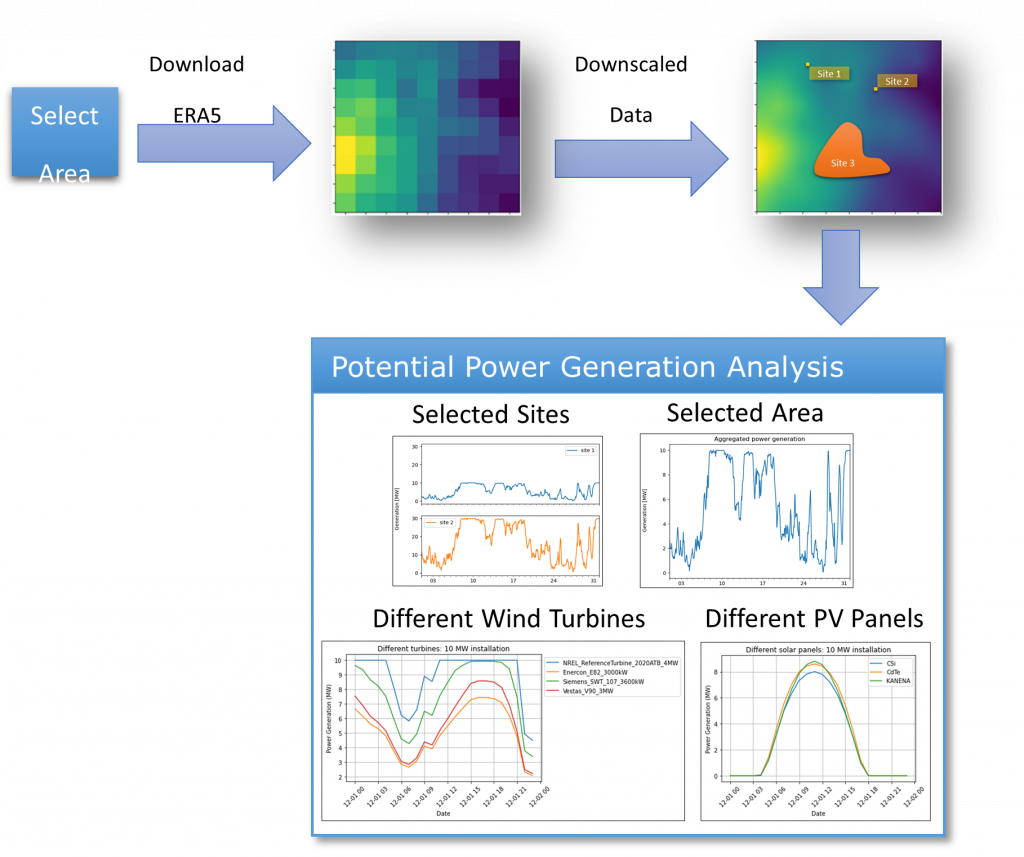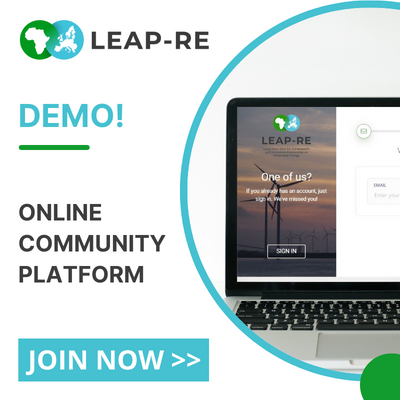The overall objective of the Open Access AU-EU Ecosystem for Energy System Modelling (OASES) project as part of the LEAP-RE Portfolio is the development and demonstration of a sustainable AU-EU ecosystem for energy system modelling, based on open-source software and open access data.
One of the challenges of renewable energy system modelling at localised, small spatial scales is the lack of reliable estimates of the availability and amount of renewable resources at the small scale, and at sufficient temporal detail. Such climate information can be very difficult or expensive to obtain at these required scales.
Therefore, obtaining data on renewable resources from open sources or freely/ publicly available datasets, and then deriving sufficient details out of such data for energy modelling at localised scales would be highly beneficial and is one of the objectives of of the OASES project. This includes a resource assessment (available data, software, and methods) and ending with the generation of high-resolution RES time series.
Great progress has been made so far, successfully developing methods for downscaling climate data to a 1km x 1km spatial scale at an hourly resolution; calculating capacity factors for wind and solar time series; and using the capacity factors to calculate hourly wind and solar power generation timeseries at a 1km x 1km resolution. The developed process flow utilises existing open access data and open-source software that was linked with the methods, parameters, and code, and that was refined to suit the purpose and data formats.

Not only have methods been developed to downscale data in certain locations, but existing methods have been refined to select potentially suitable locations for new renewable energy generation using a number of engineering and environmental criteria. The project therefore greatly contributes in the planning for including more renewable generation within an energy system, by identifying potentially suitable sites and deriving the power generation profiles at those locations.
The methods were developed and tested using data for a test location in South Africa, and next will be tested on other locations, by some of the research partners in other countries, to verify that the procedure and models are sufficiently generalised. On successful implementation, the data, methods and code will be made available as outputs of the project.




